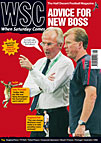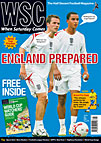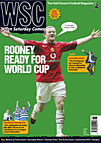 The team were still a letdown, but England had more winning ways off the pitch, to the relief of Philip Cornwall
The team were still a letdown, but England had more winning ways off the pitch, to the relief of Philip Cornwall
Six years ago, at Euro 2000, I was on the point of giving up on England. I had the masochistic streak needed to cope with events on the pitch, but not what came with it for much longer: the sullen contempt for anything and anyone who wasn’t English that radiated from so many of the team’s followers even if they weren’t expressing it in word, song, action. Some of these people seethed in their sleep.

